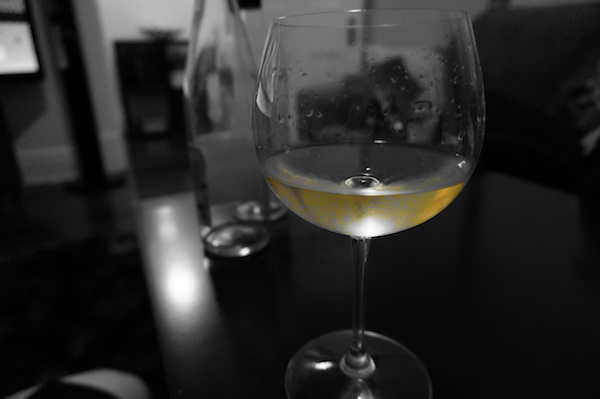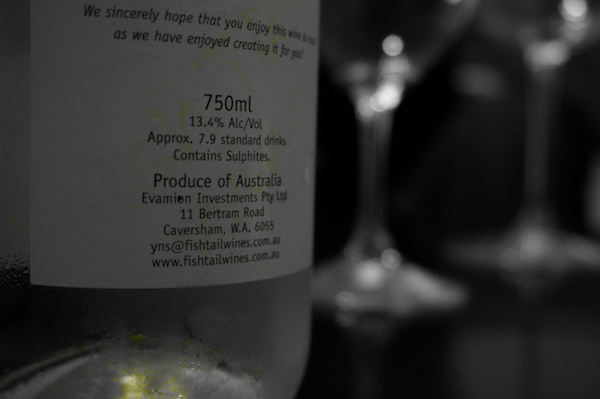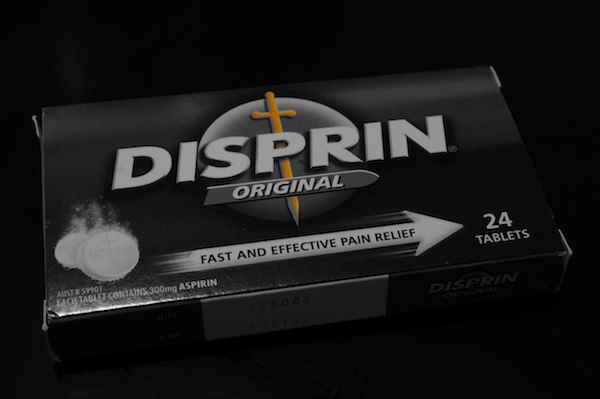 The “red wine headache” is a common issue. But what about when the bottles are switched and it’s actually the white wine that is going straight to your head and giving you a nasty “wine flu” the next day?
The “red wine headache” is a common issue. But what about when the bottles are switched and it’s actually the white wine that is going straight to your head and giving you a nasty “wine flu” the next day?
There are various theories as to why this occurs to some people. After a fair bit of research and a few bottles of white consumed (a girl’s got to do her research after all!) I have narrowed it down roughly to the most highly talked about theory – Sulphites.
On virtually every bottle of wine you’ll notice the words, ‘Contains Sulphites’ on the back label. Sulphites = Sulphur Dioxide = SO2 = is the preservative used in winemaking to keep the freshness and work as an antioxidant to remove unwanted yeasts & bacteria.
Sulphites are naturally found on grapes however small amounts of sulphur are added prior to fermentation. Red wines generally have lower amounts of sulphites than whites. Therefore this could be the possible cause of the white wine blues.
Another popular theory is the way we drink white wine. It is said that we drink white wine at a much faster rate than red which means we end up consuming more. Just think about it, it’s summer, it’s hot and you want a wine to quench your thirst.
 So maybe the most important thing I can share with you is how you can try to lessen the damage of having a glass or two of white wine:
So maybe the most important thing I can share with you is how you can try to lessen the damage of having a glass or two of white wine:
As part of my research I recently visited Harris Organic Wines in the Swan Valley in Western Australia. I had a good talk with the owner and winemaker, Duncan about this topic and he too suggested the likely cause could be sulphites and possibly acidity, as acidity levels are also generally higher in white wines.
After tasting through the Harris Organic Wines range I actually had a new appreciation for this style of winemaking. The dry whites (learn more about dry white wines here), sweet whites and reds were all very beautiful wines, I was flabbergasted at the quality actually. Check out my tasting note on the Harris Organic 2009 Verdelho here.
After all this if you are still suffering, well it’s not the end of the world. Just think of all those reds out there to taste. Plus these days you can get some lovely reds which are meant to be chilled prior to drinking – perfect for summer! And of cause you have the Aussie phenomena of sparkling reds if you really feel like putting on a show.
Please leave a comment on your thoughts of the great debate on what causes the ‘white wine headache’ and any tips and tricks on how to avoid it.. Help a wino out!
Red wine can get you drunk faster than white if you’re drinking red wine with a higher ABV than its white counterpart. Generally, sparkling wines and Champagne have a lower ABV than both white wines and red wines. Can you get drunk on a bottle of wine? A bottle of wine will get the average person drunk.

Our experts continually monitor the health and wellness space, and we update our articles when new information becomes available.
Congeners are chemical byproducts of the fermentation process that give wine and other alcoholic drinks their flavor. They’re found in higher concentrations in darker drinks, including red wine.
Congeners are associated with more severe hangovers, though experts still aren’t exactly sure why.
No, though research shows that people report ~feeling~ different emotional responses to different drinks.
If you want to avoid a wine hangover, stick to clear drinks like vodka, which contain almost no congeners. If you’d rather not break up with wine, swapping red for white wine can help, since white wine has lower concentrations of these chemicals.
As part of my research I recently visited Harris Organic Wines in the Swan Valley in Western Australia. I had a good talk with the owner and winemaker, Duncan about this topic and he too suggested the likely cause could be sulphites and possibly acidity, as acidity levels are also generally higher in white wines.
After tasting through the Harris Organic Wines range I actually had a new appreciation for this style of winemaking. The dry whites (learn more about dry white wines here), sweet whites and reds were all very beautiful wines, I was flabbergasted at the quality actually. Check out my tasting note on the Harris Organic 2009 Verdelho here.
There are various theories as to why this occurs to some people. After a fair bit of research and a few bottles of white consumed (a girl’s got to do her research after all!) I have narrowed it down roughly to the most highly talked about theory – Sulphites.
 The “red wine headache” is a common issue. But what about when the bottles are switched and it’s actually the white wine that is going straight to your head and giving you a nasty “wine flu” the next day?
The “red wine headache” is a common issue. But what about when the bottles are switched and it’s actually the white wine that is going straight to your head and giving you a nasty “wine flu” the next day?
Sulphites are naturally found on grapes however small amounts of sulphur are added prior to fermentation. Red wines generally have lower amounts of sulphites than whites. Therefore this could be the possible cause of the white wine blues.
This is the Difference Between Being Wine Drunk Versus Beer or Liquor Drunk
FAQ
Why does red wine make me more drunk than white?
Which is more intoxicating red or white wine?
Is there more alcohol in red or white wine?
Can red wine get you drunk faster than white?
Red wine can get you drunk faster than white if you’re drinking red wine with a higher ABV than its white counterpart. Generally, sparkling wines and Champagne have a lower ABV than both white wines and red wines. Can you get drunk on a bottle of wine? A bottle of wine will get the average person drunk.
What are the effects of drinking one cup of red wine almost every day?
Wines rich in polyphenols, particularly resveratrol, anthocyanins, and catechins, are the best antioxidants for wine. By scavenging free oxygen radicals and reactive nitrogenous radicals, resveratrol protects the brain and nerve cells by permeating the blood-brain barrier. It also plays a role in the prevention of cardiovascular diseases. Additionally, it lessens platelet aggregation, which prevents blood clots or thrombi from forming. If we can also be careful with the balanced diet, this potential benefit would be good.
Why is red wine better than white wine?
For one thing, the alcohol by volume (ABV) is typically higher in red wines compared to white wines. Darker alcoholic beverages, like red wine, also contain higher concentrations of congeners (more on these in a minute), which may affect how your body processes alcohol, leaving it in your system longer. What about those wine hangovers?
Does wine make you drunk?
Yes, wine has the potential to make you drunk. The main intoxicating component in wine is alcohol, specifically ethanol. Ethanol affects the central nervous system, leading to various physiological and psychological effects. The alcohol content in wine can vary depending on several factors, such as the type of wine and the fermentation process.
